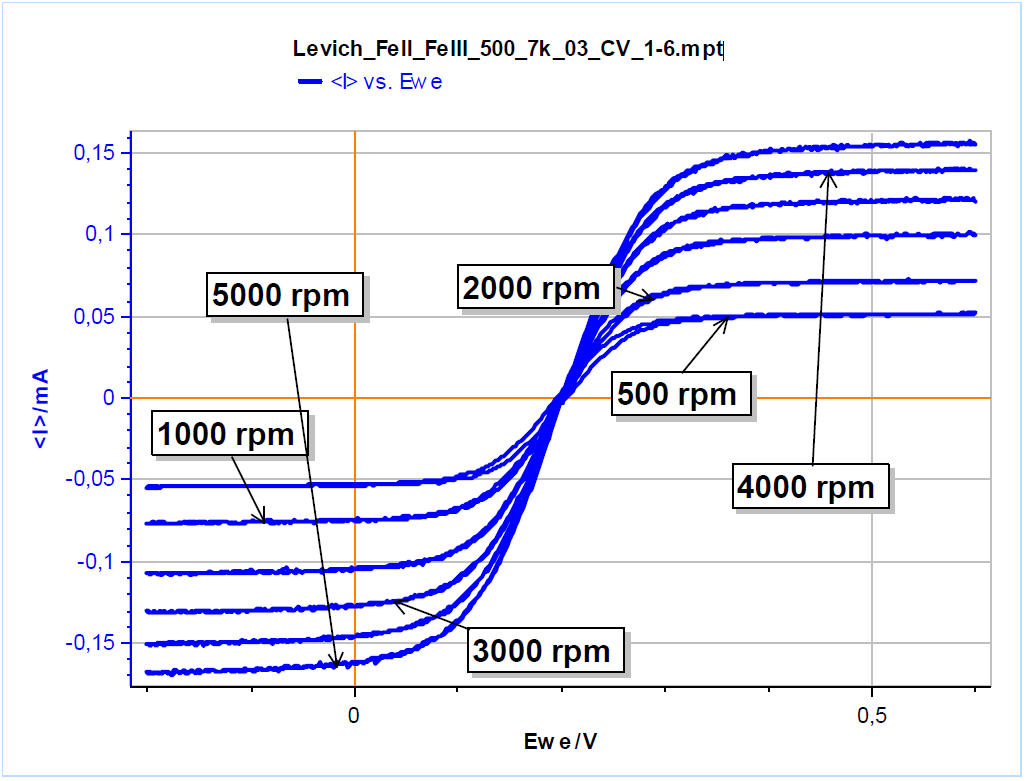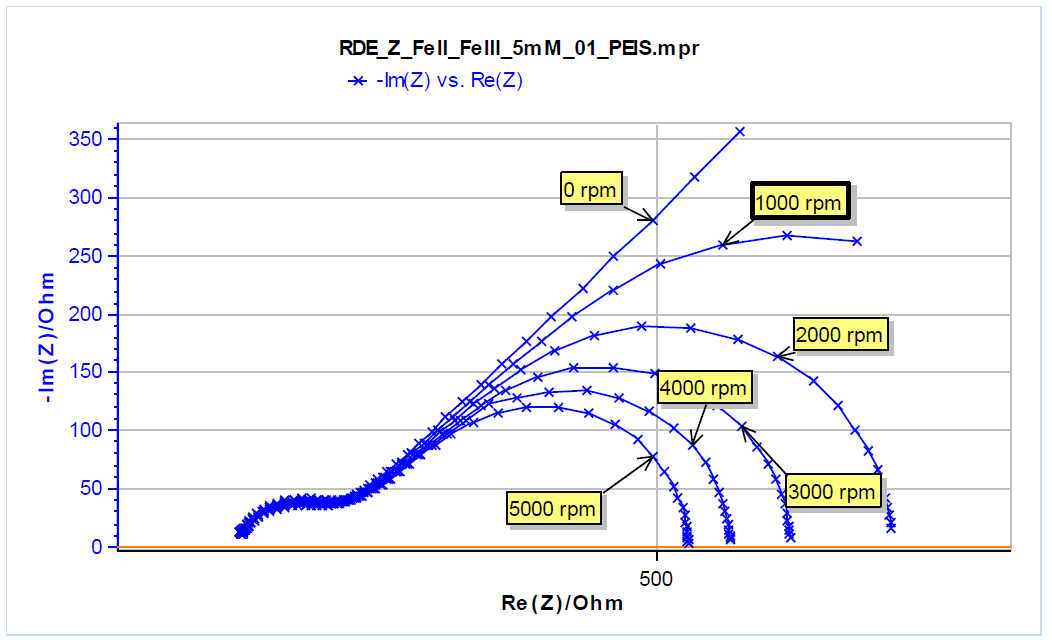Rotating Disk Electrodes: their value and use
Latest updated: August 9, 2023The Rotating Disk Electrode is a device used to perform steady-state studies of a redox reaction and measure its kinetic parameters. By using a rotating electrode, the steady-state mass transport regime can be reached, for which the extent of the reaction depends on the rotation rate of the electrode.
Performing linear voltammetry at various rotation rates leads to the determination of the diffusion coefficient of the reactive species, using the Levich equation and the Levich plot. Using the more advanced Koutecký-Levich plot, one can have access, for sluggish kinetics, to the standard constant of the reaction as well as its symmetry factor.
Performing EIS on an RDE at various rotation rates also lead to kinetic parameters. Fitting EIS data using ZFit and unique fitting component named Winf , one has direct access to the diffusion constant of the reacting species, without additional analysis.


For more information please see the application notes below
Related products